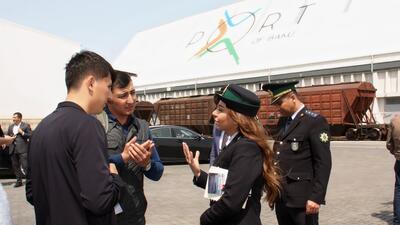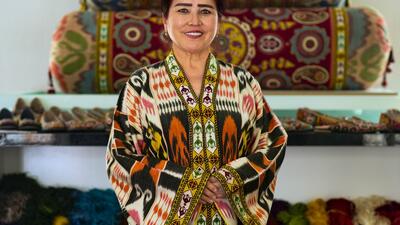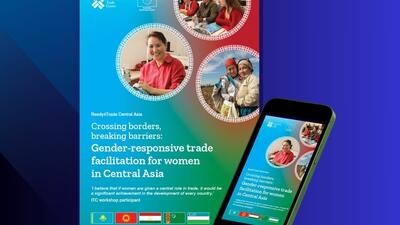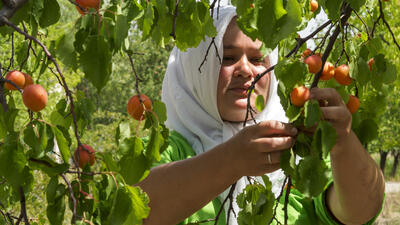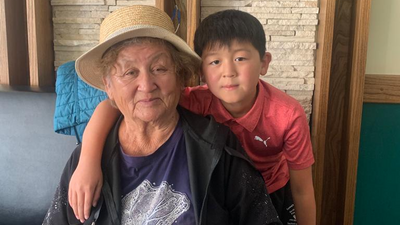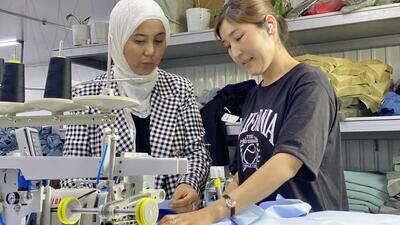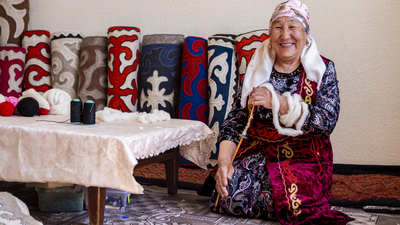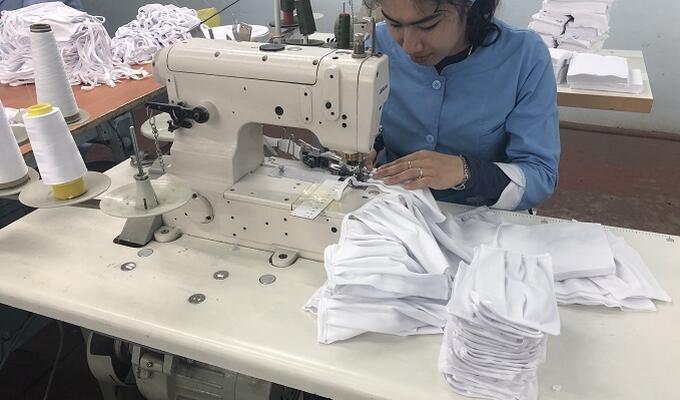
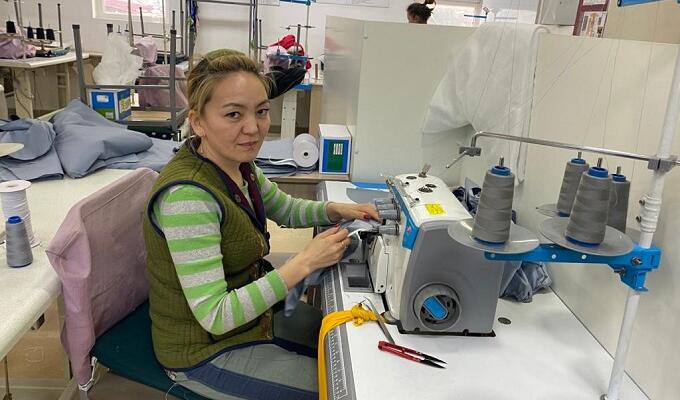
Central Asian textile and clothing enterprises help turn the tide
Companies in Kyrgyzstan and Tajikistan adopt a forward-looking approach to beat COVID-19.
Saparbek Asanov is the President of the Association of Light Industry Enterprises of Kyrgyzstan, "Legprom".
According to him, textile and clothing companies in Kyrgyzstan have suffered a severe blow from the coronavirus. Out of 1000 factories in the capital Bishkek, only around 17 have managed to continue operations.
These factories have shifted their production towards meeting new consumer demands. One such factory is Aktis, a women's garment manufacturing company, located in the suburban area of Bishkek.
During a critical shortage of masks and other protective equipment, Aktis recently completed an order of 2,500 facemasks and 350 personal protective garments for the civil volunteer movement, Narodnyi Shtab, which helps front-line workers fighting the coronavirus.
An additional 504 sets are to be produced in the coming weeks. The companies are not only determined to deliver top quality products but also to ensure the safety of their employees. All employees have received new uniforms including protective gloves and masks. Workshops are regularly disinfected.
A sense of duty towards those in need rather than economic interest drives these workers to leave their homes during this difficult time.
As part of the recovery plan, the Legprom Association, in close contact with garment manufacturers, is devising a post-COVID-19 strategy to support the textile and clothing sector in Kyrgyzstan.
New opportunities in Tajikistan
As a popular Tajik proverb says, when one door closes another opens - the pandemic opened up new opportunities for textile and clothing companies in the country. Products such as protective facemasks, medical uniforms, bed linen, hospital clothes, cotton bandage, and other medical and sanitary products are in great demand today.
Resandai Qurghontepp, one of the International Trade Centre's (ITC) partners, produced and donated 100,000 facemasks to medical facilities in Bokhtar, the third-most populated city in the country. This example encouraged other ITC partners to engage and help. As a result, two companies, Mehrovar and Guldaston, also produced masks and donated to schools and hospitals in their region.
COVID-19 response initiatives have provided an opportunity for ITC partner companies to use the knowledge and information they gained at a training on corporate social responsibility last year.
More than 10 textile and clothing companies working with ITC have now shifted to the production of protective facemasks and other sanitary products.
Global Textiles and Clothing Programme
The International Trade Centre's Global Textiles and Clothing Programme (GTEX) and its related work in the Middle East and North Africa (MENATEX) provides support to these companies in Kyrgyzstan and Tajikistan.
The programme promotes Textile and Clothing (T&C) exports from countries in Central Asia, the Middle East and North Africa. The aim is to stimulate employment and income generation along the value chain.
The GTEX programme is funded by the Government of Switzerland and MENATEX is funded by the Government of Sweden for the MENA region.




